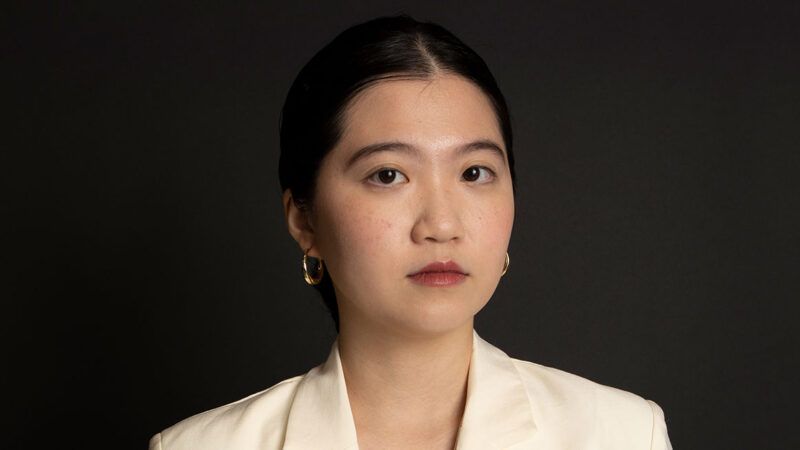Hongkonger Anna Kwok on Human Rights
Right now, Hongkongers have lost their avenues to speak because of the national security law imposed by the new government.

During the 2019 Hong Kong pro-democracy protests, Anna Kwok worked as an anonymous online organizer for Freedom Hong Kong, a group that crowdfunded protests at the G-20 summit and elsewhere. Now exiled and living in Washington, D.C., Kwok is the strategy and campaign director at Hong Kong Democracy Council (HKDC), a U.S.-based nonprofit that seeks to expand freedom in China.
In October, Reason's Nick Gillespie interviewed Anna Kwok at the Oslo Freedom Forum in New York City about the sense of loss she feels not being able to return to her home country.
Q: What is the global state of human rights?
A: On the one hand, our freedom movements around the world are banding together and we're really trying to resist the regimes that we're living under. But on the other hand, the dictators are also cooperating and banding together to try to oppress people like us. Human rights are no longer an issue that is confined to different geographical locations or countries. But instead, atrocities are happening transnationally, including how, for example, the Chinese Communist Party (CCP) has been doing a lot of media censorship in the U.S. and other countries around the world. So the state of global human rights is really transcending national boundaries.
Q: How is the CCP censoring the media in the United States?
A: There are a lot of media companies internationally who would really like to invest in and be a part of the Chinese market. And in order to do that, they have to form some implicit agreement with the CCP that if certain information should be censored, they will comply. The CCP has been using nationalism and patriotism to stop people like us from continuing to voice concerns about the oppression that's going on inside of China.
Q: What is the state of protests now in Hong Kong?
A: In Hong Kong, you saw in 2014 how people fought bravely on the street during the Umbrella Movement and then in 2019 people rose up and took to the street again in the decentralized movement. And all this time people have been bravely trying to use their voices to get heard by the international society. But the international society never really responded succinctly to our demands. So right now, Hongkongers have lost their avenues to speak because of the national security law imposed by the new government. It gives the government authority to arbitrarily arrest people for absolutely anything. Even asserting that you're a Hongkonger can be considered seditious. It's considered dangerous to society, and they would arrest you.
Q: Do you have a sense of loss for the Hong Kong you grew up in?
A: To talk about Hong Kong is definitely a very difficult topic for me because I grew up in the city for a long time. All my life I was thinking that I would go back and make some movies there and be a Hongkonger. Of course, my life has changed completely because I have to go into exile. That feeling of not being able to go back, not being able to see the people you love, or even not being able to see the Hong Kong scenery that you're used to your entire life, is haunting. I don't think anyone can get over that. It's not something you can get over, but you just have to figure out a way to stay hopeful.
This interview has been condensed and edited for style and clarity. For a video version, visit reason.com.
